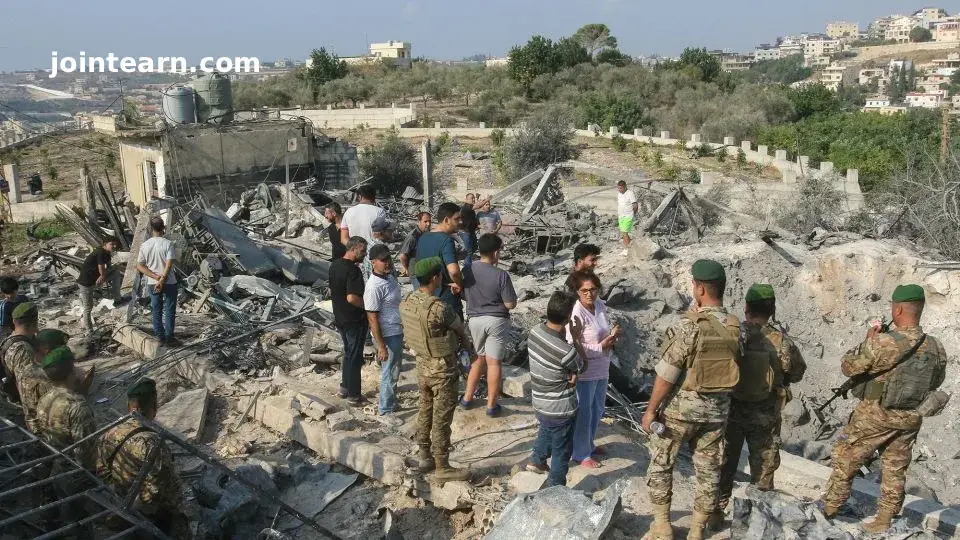
SOUTHERN LEBANON, November 7, 2025 – The Israeli military carried out multiple airstrikes across southern Lebanon on Thursday, targeting sites it said were used by Hezbollah to rebuild its military capabilities. The strikes focused on weapons storage facilities linked to Hezbollah’s elite Radwan Force, which Israel accused of attempting to “reestablish terrorist infrastructure” in the region.
Lebanese Response and Alleged Violations
Lebanese President Joseph Aoun condemned the attacks, asserting that they violated international humanitarian law and forced civilians to flee their homes. He called the strikes a “fully fledged crime” and accused Israel of escalating aggression despite Lebanon’s openness to peaceful negotiations.
“The more Lebanon expresses its openness to the path of peaceful negotiation to resolve outstanding issues with Israel, the more Israel intensifies its aggression against Lebanese sovereignty,” Aoun said via social media.
Prior to the attacks, the Israel Defense Forces (IDF) issued multiple evacuation warnings through its Arabic spokesperson Avichay Adraee, urging civilians to leave buildings suspected of being used by Hezbollah.
UN and International Concerns
The United Nations Interim Force in Lebanon (UNIFIL) reported observing several strikes in southern Lebanese villages, including Tayr Dibbah, Taibe, and Ayta al Jabal. UNIFIL warned that the attacks threatened civilian safety and violated UN Security Council Resolution 1701, which called for a cessation of hostilities between Israel and Hezbollah following the 2006 war.
“Any military action, especially on such a destructive scale, threatens the safety of civilians and undermines the progress being made toward a political and diplomatic solution,” UNIFIL stated.
Background: Escalating Tensions
Hostilities between Israel and Hezbollah escalated after the October 7, 2023 Hamas attack on Israel, with Hezbollah launching retaliatory attacks on Israeli positions. Israel responded with targeted operations in southern Lebanon, including a “limited ground operation” in 2024.
A US-brokered ceasefire in November 2024 required Israel to halt offensive operations and gradually withdraw from southern Lebanon, while Hezbollah was to pull back heavy weaponry north of the Litani River. Israel claims the militant group has violated the truce, which Hezbollah denies.
Political and Military Reactions
The Lebanese Army stated that it continues to coordinate closely with UNIFIL, maintaining “high levels of trust and cooperation” despite the Israeli strikes.
Israel’s security cabinet reportedly convened to discuss responses to Hezbollah’s alleged rearming, following warnings from military intelligence that the group was intensifying its operations. Prime Minister Benjamin Netanyahu and Foreign Minister Gideon Sa’ar emphasized the need to prevent Hezbollah from rebuilding its offensive capabilities.
Hezbollah’s Statement
Hezbollah accused Israel of repeated ceasefire violations and of attempting to pressure Lebanon into political concessions:
“Lebanon is absolutely not interested in succumbing to aggressive blackmail or being drawn into political negotiations with the Zionist enemy. Such negotiations serve no national interest and pose existential risks to Lebanese sovereignty,” the group said.
US Perspective
US Special Envoy Tom Barrack described Lebanon as a “failed state” and expressed skepticism about the Lebanese government’s ability to disarm Hezbollah. He highlighted the imbalance between Hezbollah’s extensive weapons arsenal and Lebanon’s armed forces, warning that forced disarmament could spark internal conflict.
Humanitarian Concerns
The strikes, while intended to target Hezbollah, have displaced civilians and raised concerns over potential escalation in southern Lebanon. UN officials and local leaders have called for restraint to avoid further civilian casualties and preserve avenues for diplomatic resolution.


Leave a Reply